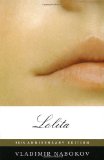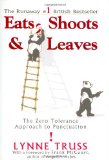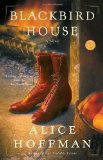I don’t think I’ve ever read a memoir quite like Reading Lolita in Tehran. Azar Nafisi’s book is part recollection of her hardships and those of her students while living in an Islamic “republic,” and part recollection of the novels they read together and the meanings of those novels — how they resonated for each of them. The author/teacher has come to see the two as inextricably linked. As her “magician” says, “You will not be able to write about Austen without writing about us, about this place where you rediscovered Austen. You will not be able to put us out of your head. Try, you’ll see.”
Nafisi divides her recollection across her experiences with four books: Lolita (Vladimir Nabokov), The Great Gatsby (F. Scott Fitzgerald), Daisy Miller (Henry James), and Pride and Prejudice (Jane Austen). When I began this book several months ago, I had not read Lolita, and in fact, picked it up because of this book (I had read all the others). I found several passages in the section about Gatsby that I intend to ask at least my Honors students to read. I actually came to have a new appreciation for Daisy Miller, which I didn’t remember liking very much when I read it in college.
Nafisi began a literature class for women out of her home after being fired from the University of Tehran for refusing to wear the veil. I found her accounts of teaching Gatsby in the university to be more interesting than her accounts of the secret literature class. To be honest, I found it difficult to keep up with all the characters. I’m not sure if this was due to the non-Western names or some other lack of mine or whether it was a failing of Nafisi’s. Perhaps other readers can comment with their thoughts on this.
In the Epilogue, Nafisi writes, “I left Tehran on June 24, 1997, for the green light that Gatsby once believed in.” It seems as if Nafisi’s characters have a love/hate relationship with the West. Many see it as a haven, while others revile it for its secularism and sinfulness, but most feel some sort of complex mixture of the two. In many ways, Nafisi’s relationship with Iran may be viewed the same way. She describes her homeland with sensuality one moment and disgust the next. Probably the most memorable passage recalled when Nafisi remarked to her husband that “living in the Islamic Republic is like having sex with a man you loathe… you make your mind blank — you pretend to be somewhere else, you tend to forget your body, you hate your body.” It seems that books helped Nafisi escape. Books are the “somewhere else” that Nafisi went went real life became too much.
I think this book should be required reading for anyone who loves literature, especially literature teachers. It is a passionate defense of reading for the sake of reading, but also for the impact that literature can have on one’s life.
Note: I’m aware that the review image looks wonky with the hover hyperlink. I’ve been playing with the CSS, but I can’t keep it from working on the review image unless I take it off the rest of the site, and frankly, that would involve lots of color changes, because you can’t tell the text is a link without an underline. I’ve asked for help, so hopefully I can fix it soon. I decided it would be the lesser of two evils to let the review look wonky until I can fix it rather than make the links too hard to find.
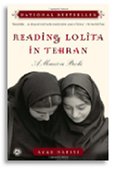

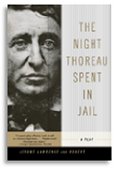

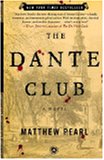
 Dan Brown wrote the book jacket blurb that appears on the cover of
Dan Brown wrote the book jacket blurb that appears on the cover of 